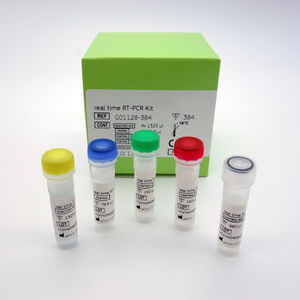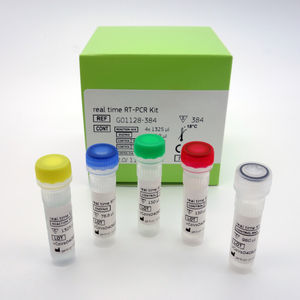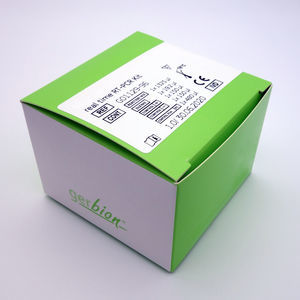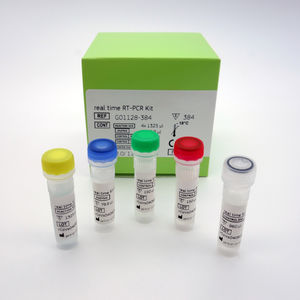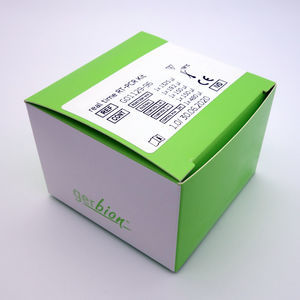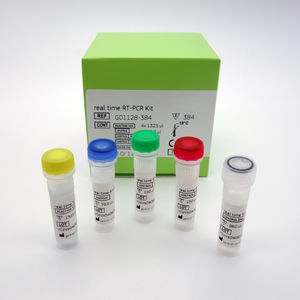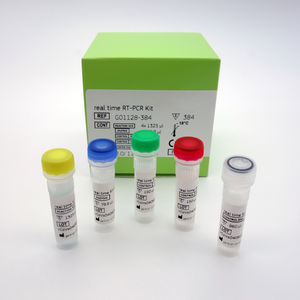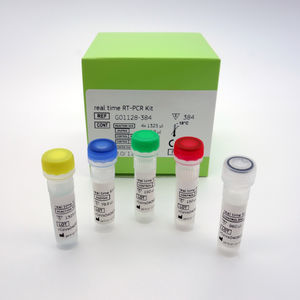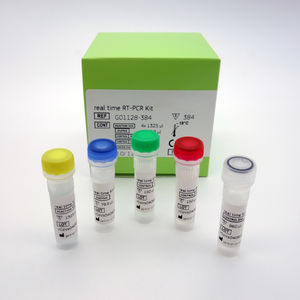
- Laboratory
- Laboratory medicine
- Solution reagent
- LINEAR CHEMICALS
- Company
- Products
- Catalogs
- News & Trends
- Exhibitions
Solution reagent kit diarellaGBSdiagnosticfor RT-PCRfor DNA qualification
Add to favorites
Compare this product
fo_shop_gate_exact_title
Characteristics
- Type
- solution
- Applications
- diagnostic, for RT-PCR, for DNA qualification
- Format
- liquid
- Tested parameter
- for genes
- Micro-organism
- Streptococcus B
- Storage temperature
-18 °C
(-0 °F)Max.: 2 °C
(36 °F)Min.: -8 °C
(18 °F)
Description
The diarellaGBS real time PCR is an assay for the detection of the DNA of GBS in clinical specimens.
2 Pathogen Information
Streptococci mainly colonise mucous membranes in humans. Beta-hemolyzing streptococci of serogroup B (GBS) in the maternal genital tract can be transmitted to the child during birth. The Transmission may lead to early onset illness within the first hours up to 3 days after birth with serious systemic infection and pneumonia. Aetiopathology with shock symptoms and neurologic long-term damages may occur. Late onset illness can be cuased by transmission by the mother or e.g. nursing staff. Early onset infection occurs within app. 1 of 2.000 newborns. The affected majority (app. 80 %) are mature newborns. App. 4 % of the diseased children die. The following factors promote the transmission of GBS:
•Presence of GBS in high titers in the maternal genital tract at birth.
•Period of more than 18 h between rupture of membranes and confinement.
•Maternal fever during birth.
•Preterm birth before week 37 of pregnancy.
•GBS present in maternal urine during pregnancy.
•Previous birth of a child with GBS infection.
In order to minimize the risk of GBS-transmission to newborns, pregnant women should be examined between week 35 and 37 of pregnancy. In case of a GBS-positive result, antibiotics treatment of the mother during birth can be done. In case of a negative result within 5 weeks before birth, antibiotics treatment of the mother can be avoided.
3 Principle of the Test
The diarellaGBS real time PCR contains specific primers and dual-labeled probes for the amplification and detection of GBS DNA in clinical specimens.
Catalogs
No catalogs are available for this product.
See all of LINEAR CHEMICALS‘s catalogsExhibitions
Meet this supplier at the following exhibition(s):


Related Searches
- Assay kit
- LINEAR solution reagent
- Blood assay kit
- LINEAR molecular biology reagent
- Immunoassay assay kit
- Plasma assay kit
- Infectious disease detection kit
- LINEAR rapid blood test
- Rapid lateral flow test
- LINEAR diagnostic reagent
- LINEAR laboratory reagent
- LINEAR protein reagent
- Immunoassay rapid diagnostic test
- LINEAR cassette rapid test
- LINEAR rapid virus test
- LINEAR rapid serum test
- LINEAR rapid plasma test
- Histology reagent kit
- LINEAR rapid infectious disease test
- LINEAR rapid whole blood test
*Prices are pre-tax. They exclude delivery charges and customs duties and do not include additional charges for installation or activation options. Prices are indicative only and may vary by country, with changes to the cost of raw materials and exchange rates.












